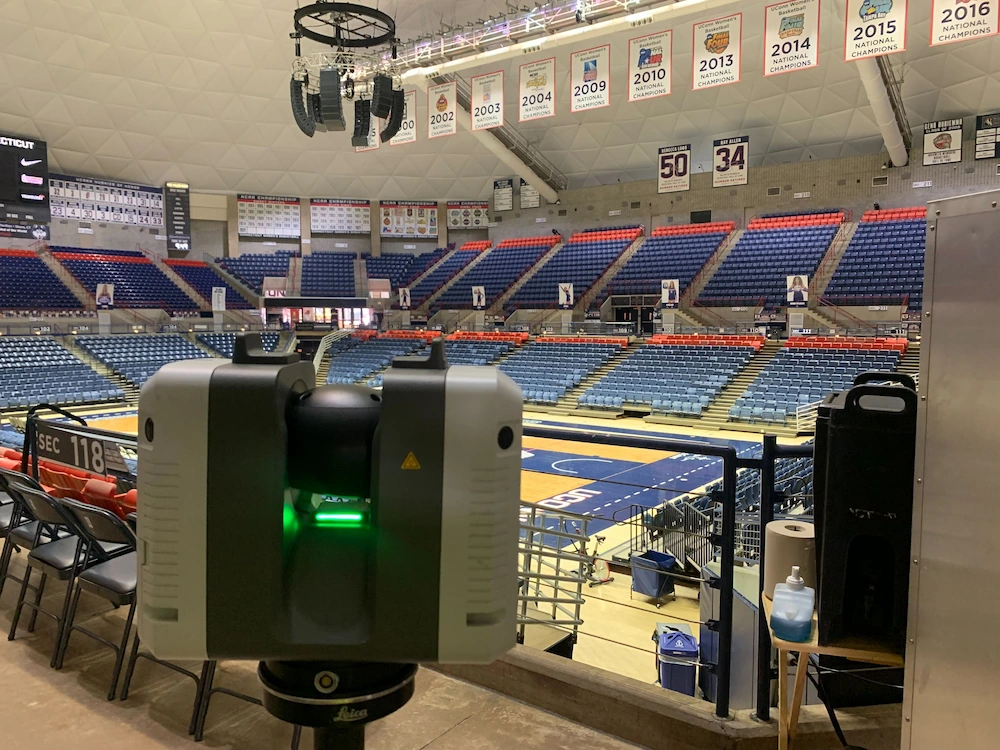Strategic Upgrades at Belton Lake Water Treatment Plant with 3D Laser Scanning

Overview of Facility Challenges: Water Main Failure and Power Outage
In May 2022, the Belton Lake Water Treatment Plant faced critical infrastructure issues. A leak in a 48-inch concrete steel water main caused a severe loss of water pressure, necessitating isolation and dewatering of the damaged segment. The Water Control and Improvement Districts (WCID-1) requested a 50% reduction in water use from customers during the repair process.
Simultaneously, a power outage due to a failed fuse from the energy provider Oncor shut down operations for three hours. With no backup power system in place, over 200,000 residents and businesses were placed under boil-water notices for days. These incidents highlighted the plant’s reliance on outdated equipment and infrastructure, underscoring the urgency for upgrades.
Engineering Solutions from CDM Smith for Long-Term Reliability
CDM Smith, an engineering firm, was engaged to develop an upgrade plan focused on maintenance and capacity enhancements for the 70-year-old facility. Their recommendations included:
- Replacement of 5,000 feet of the 48-inch transmission line prone to frequent failures
- Installation of two new surge tanks
- Upgrades to the raw water pump station
- Recoating of a storage tank at Plant 3
General Manager Ricky Garrett emphasized the plant’s reliance on aging electrical systems, stating that much of the plant’s 90-million-gallon daily capacity has been dependent on switchgear since 1979. He warned that further delays in maintenance could lead to increased costs and operational risks, stressing the importance of addressing the water system's long-term capacity needs.
3D Laser Scanning: A Data-Driven Approach for Facility Upgrades
To effectively design upgrades for the raw water pump station, CDM Smith leveraged 3D laser scanning technology provided by GPRS (Ground Penetrating Radar Systems). The objective was to capture precise, real-world data on both the interior and exterior of the pump station.

Scope and Benefits of 3D Laser Scanning
GPRS used the Leica RTC360 scanner to capture detailed point cloud data with construction-grade accuracy across 5,000 square feet. This included key architectural elements (walls, floors, ceilings, and windows) as well as mechanical and electrical components (pipes, valves, motors, pumps, and electrical systems). The scan provided:
- Complete Documentation: All systems, down to 2” piping, electrical panels, and HVAC equipment, were documented.
- Clash Detection: The data allowed CDM Smith to detect potential conflicts between new designs and existing infrastructure early in the design phase.
- Precision Coordination: Survey control points were incorporated to align the point cloud with BIM models, reducing design errors and project delays.
The 3D laser scan provided a detailed as-built model, enabling accurate prefabrication of components and streamlining the design process for the electrical building, duct banks, and pump replacement.

3D Laser Scanning for Water Treatment Facilities: Key Advantages for Facility Managers, Architects, and Engineers
- Accurate As-Built Documentation
Laser scanning delivers a precise representation of existing structures, equipment, and piping layouts. Facility managers benefit from having a single, reliable data source that can be referenced throughout the project lifecycle, reducing miscommunication among stakeholders. - Improved Design and Renovation Efficiency
Architects and engineers use point cloud data to create accurate 3D models, avoiding design clashes and costly rework. This ensures new systems integrate seamlessly with existing infrastructure, accelerating project timelines. - Enhanced Collaboration and Coordination
With access to a centralized BIM model, all project teams—from design to operations—can collaborate more effectively. 3D visualization tools also help facility owners make informed decisions based on real-world conditions.

Delivering Precise Data for Complex Facility Upgrades
Existing Conditions & GPRS provide industry-leading 3D laser scanning services to water and wastewater treatment plants, capturing detailed site conditions and transforming them into actionable 3D models. Our expertise spans a range of critical infrastructure projects, including pump stations, elevated tanks, pipe galleries, and filtration systems.
Using advanced Leica 3D laser scanners, GPRS delivers:
- Construction-Grade Accurate Point Clouds
- Customized 2D CAD drawings, 3D BIM models, and virtual walkthroughs
- Seamless integration with design software for precise planning, prefabrication, and construction
Our experienced Project Managers ensure every scan captures the critical details needed for reliable upgrades and smooth project execution. By partnering with municipalities and engineering firms, we deliver infrastructure improvements that enhance performance, safety, and sustainability.
Facility managers, architects, and engineers can rely on 3D laser scanning to make informed decisions, reduce risks, and streamline water treatment plant upgrades. With accurate as-built data, Belton Lake Water Treatment Plant will achieve critical improvements, ensuring reliable water service for years to come.
Existing Conditions 3D Laser Scanning Services
Over the past 27 years, we have measured, documented, and modeled over 10,000 buildings spanning over 700 million square feet across the United States, establishing ourselves as an industry leader in 3D laser scanning. Architects, builders, engineers, developers, facility managers, trust us to deliver digital representations of the as-built environment with unparalleled accuracy and efficiency. Our dedicated Project Managers provide fast and accurate 3D laser scanning services and drone imagery services, and expert CAD and BIM technicians create custom, detailed deliverables. Our greatest reward remains delivering superior-quality scan-to-BIM work and knowing we played a vital role in our clients’ unique and historic projects.










